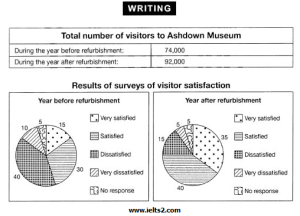IELTS Band 9 Essay About students should pay the full cost for their own study
Here we take a look at a band 9 ielts writing task 2 sample about “students should pay the full cost for their own study”. This sample then will be further analyzed for its vocabulary, grammar and format, so we see how it has qualified for such band score. We also suggest over 100 band 9 IELTS sample released in 2024.
Short Explanation about students should pay the full cost for their own study
The notion that students should bear the full cost of their university education stems from the idea that higher education primarily benefits individuals. While it is true that graduates gain personal advantages, such as increased employability and earning potential, universities also provide broader societal benefits. These include fostering innovation, addressing skill shortages, and creating informed citizens who contribute to economic and social progress. If students were required to pay the entire cost, many capable individuals might be excluded due to financial barriers, exacerbating inequality. A shared funding model, balancing individual and societal contributions, is a more equitable and sustainable approach.
Band 9 Model Answer
Students should pay the full cost for their own study, because university education benefits individuals rather than society.
To what extent do you agree or disagree?
The assertion that students should fully fund their university education on the grounds that it benefits individuals more than society is highly contentious. While it is undeniable that graduates reap substantial personal rewards, I strongly disagree with the notion that they should bear the entire financial burden, as higher education yields significant societal benefits.
Firstly, university education drives societal progress by fostering innovation and addressing critical skill shortages. Graduates in fields like medicine, engineering, and education contribute directly to societal well-being by solving complex problems and enhancing the quality of life. These contributions are indispensable, particularly in areas such as public health and technological advancement, where society as a whole reaps the rewards. Thus, higher education is a public good, warranting government investment to ensure its accessibility.
Secondly, requiring students to pay the full cost of education could exacerbate socio-economic inequalities. Many talented individuals from disadvantaged backgrounds would be unable to afford university, resulting in a loss of potential human capital. Societies that promote equal access to education enjoy greater social mobility and economic growth. For instance, countries with heavily subsidized university systems, such as Finland, demonstrate lower income disparities and higher productivity levels. This underscores the importance of shared financial responsibility between individuals and the state.
Critics argue that personal gains, such as higher salaries and career opportunities, justify students funding their education. While this is valid to some extent, implementing a shared-cost model through income-contingent loans or progressive taxation ensures that graduates contribute to public finances in proportion to their success. This approach balances individual responsibility with societal support, creating a fairer system.
Finally, public investment in education cultivates informed, engaged citizens, strengthening democracy and social cohesion. By prioritizing equitable access to education, societies can mitigate divisions and create a more inclusive environment for all.
In conclusion, while university education undeniably benefits individuals, its societal contributions are equally profound. Requiring students to fully finance their studies would not only exacerbate inequalities but also undermine the collective benefits of higher education. A balanced funding model, incorporating both public investment and individual contributions, is essential for fostering a just and progressive society.
Total = 352 Words

Five Academic Words with Pronunciation and Sentences
- Contentious (/kənˈtɛn.ʃəs/)
Sentence: Climate change remains a contentious issue among policymakers worldwide. - Indispensable (/ˌɪn.dɪˈspɛn.sə.bəl/)
Sentence: Clean water is indispensable for maintaining public health. - Inequalities (/ˌɪn.ɪˈkwɒl.ɪ.tiz/)
Sentence: Addressing educational inequalities is crucial for achieving social equity. - Mobility (/moʊˈbɪl.ɪ.ti/)
Sentence: Improved public transportation enhances social and economic mobility. - Subsidized (/ˈsʌb.sɪ.daɪzd/)
Sentence: Many governments have subsidized renewable energy projects to combat climate change.
Five Advanced Grammar Structures and Their Impact
- Complex Sentences with Subordinate Clauses
Example: “While it is undeniable that graduates reap substantial personal rewards, I strongly disagree with the notion that they should bear the entire financial burden.”
Impact: Adds depth and clarity to the argument by linking contrasting ideas effectively. - Passive Voice
Example: “Public investment in education cultivates informed, engaged citizens.”
Impact: Places emphasis on the action and its effects, maintaining a formal tone. - Use of Conditional Sentences
Example: “If students were required to pay the entire cost, many capable individuals might be excluded due to financial barriers.”
Impact: Introduces hypothetical scenarios to strengthen the argument and provide nuanced reasoning. - Nominalization
Example: “Requiring students to pay the full cost of education could exacerbate socio-economic inequalities.”
Impact: Enhances the academic tone by focusing on concepts rather than actions. - Use of Examples
Example: “Countries with heavily subsidized university systems, such as Finland, demonstrate lower income disparities and higher productivity levels.”
Impact: Provides concrete evidence to support claims, making the argument more persuasive.
Writing Format and Features for Band 9
- Introduction: Clearly paraphrases the question and presents a definitive stance.
- Body Paragraphs: Organized into clear ideas, supported by examples, evidence, and logical reasoning.
- Conclusion: Summarizes the argument while reaffirming the stance without repetition or new points.
- Cohesion and Coherence: Maintains a seamless flow with linking words like thus, however, for instance, and in conclusion.
- Lexical Resource: Incorporates sophisticated vocabulary like contentious, indispensable, and inequalities, suitable for an academic context.
- Grammatical Range: Displays varied sentence structures, including conditionals, passives, and complex sentences, all used with accuracy.
This essay achieves Band 9 through its clear structure, balanced argumentation, advanced language, and precise grammar.
Free IELTS Sample Essays with Answers PDF
Here you can download over a 1000 sample essays in pdf written by ex ielts examiners: PDF 1 / PDF 2 / PDF 3 / PDF 4 / PDF 5
Last But Not Least!
we suggest a useful IELTS website in English for more valuable IELTS sample essays on a range of topics. Our final suggestion is our writing free correction Telegram channel where you can send your own sample for evaluation and correction by an experience IELTS tutor with over a decade of practical experience in this matter.






